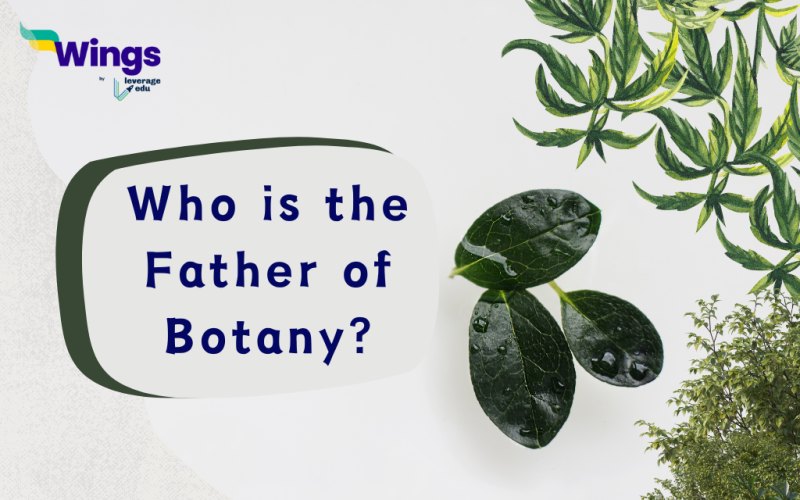The father of Botany is Theophrastus. He is a renowned Greek naturalist and is celebrated as the Father of Botany, Zoology, and Embryology. Botany focuses on the examination of plants and their features and it was he who put forward the concept of agriculture. However, the father of modern botany is known to be Carolus Linnaeus. In this blog, we will read more about who is the father of Botany.
Theophratus: The Father of Botany
Theophrastus, who was born around 372 BC in Eresus, Lesbos, and passed away around 287 BC, was a renowned Greek Peripatetic philosopher and a student of Aristotle.
- He spent several years at Athens, studying under Aristotle, and when the latter was compelled to step down in 323 BC.
- Theophrastus took over as the head of the Lyceum, the academy established by Aristotle in Athens.
- Theophrastus is recognized as one of the few Peripatetics who completely embraced and understood Aristotle’s philosophy across various fields like botany, metaphysics, physics, zoology, physiology, ethics, cultural history and politics.
- His approach was to enhance the coherence of these subjects and to lessen the abstract or Platonic elements present in Aristotle’s teachings.
Also Read – Who Are the Founding Fathers of Physics?
Father of Botany Contribution
Theophratus sorted plants by their natural environments, practical applications, and growth cycles.
- He categorized plants by their physical appearance into herbs, shrubs, trees, annuals, perennials, and biennials.
- He authored ‘Historia Plantarum’ in which he gave information on plants and ‘De Causis Plantarum’ in which he discussed the properties and uses of plants, as well as their growth processes.
- Among the few remaining works of his are “Peri phytōn aitiōn” (“Growth of Plants”) and “Peri phytōn historia” (“Inquiry into Plants”), both of which are divided into nine and six books, respectively.
- His lesser-known works are – treatises on fire, winds, weather signs, scents, sensations, and more.
- One of his renowned works is Charaktēres, which has been translated into many languages and consists of thirty briefs and intense character sketches that explore the concept of moral typology, drawing from Aristotle’s ethical and rhetorical studies.
- This work even later influenced Jean de La Bruyère’s masterpiece, Les Caractères . . . (1699).
- Another piece by Theophrastus is the Physikōn doxai (“Opinions of Natural Philosophers”).
- Herman Diels, in his Doxographi Graeci (1879), has taken inspiration from his work, which lays the foundation for the study of ancient philosophical thought or ancient philosophy.
- In his ethics, Theophrastus reiterated Aristotle’s idea of a spectrum of virtues and their corresponding vices, while also acknowledging the significance of external goods, a perspective that the Stoic philosophers would dismiss as mere luxuries in life.
Therefore, he is recognized as the Father of Botany due to his significant contributions to the field through his writings on plants and other field areas.
FAQs
Aristotle is called as the father of zoology. Zoology is a field within biology that focuses on the study of animal life, their evolution, structure, function, and actions. Aristotle is also referred to as the founder of biology, being an ancient Greek thinker.
The ancient Greek thinker Aristotle gathered data on vegetation, but it was actually his pupil Theophrastus [371-286 B.C.] who received his mentor’s library and started to develop more intricate methods of categorizing plants. Therefore, Theophrastus is called the “Father of Botany.”
In India, Janaki Ammal is known as the mother of botany.
William Roxburgh, a Scottish medical doctor and plant scientist, is called the pioneer and father of Indian botany. He arrived in India in 1768 to serve as a surgeon for the East India Company. Throughout his four-decade career in India, he thoroughly investigated and recorded the diverse plant life of the Indian subcontinent.
Relevant Blogs
That is all about who is the father of Botany. If you want to know more about topics like this, then visit our general knowledge page!
 One app for all your study abroad needs
One app for all your study abroad needs













